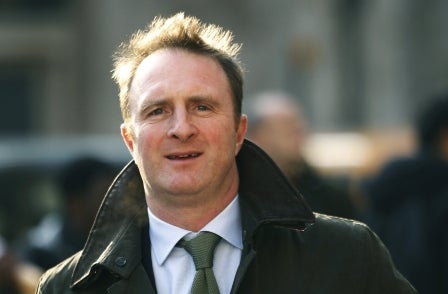
The BBC has been accused of “double standards” after offering below-inflation pay rises while splashing out £1 million on new senior salaries.
Media union Bectu has urged members to reject the 20013/14 pay offer by the corporation, which would see all staff on salaries of less than £60,000 given a flat £600 increase.
The offer represents a 3 per cent increase for the lowest-paid members of staff, earning £20,000, with nearly two thirds of staff – those earning more than £30,000 – getting less than 2 per cent.
In recent months, the BBC has hired former culture secretary James Purnell and Anne Bulford from Channel 4 to newly created roles, earning £295,000 and £395,000 respectively, while former Times editor James Harding has joined as head of news on £340,000.
Bectu general secretary Gerry Morrissey said: “The BBC wants to do all this in the name of Delivering Quality First cuts. However at the same time as they are again asking staff to tighten their belts they are employing three senior executives at a cost of more than £1million. This is yet another example of the BBC's double-standards and we'll be encouraging staff to resist the proposals in their entirety.”
In February, Bectu, the National Union of Journalists and Unite submitted a joint claim for 6.3 per cent based on RPI, which currently stands at 3.3 per cent, plus 3 per cent.
The NUJ is set to meet BBC management later this month with Sue Harris, broadcast organiser at the union, saying that industrial action was a possibility.
“We will try and negotiate with them on good faith,” she told Press Gazette. “But they should know that people are not happy.
“These guys have had job cuts year on year for eight years, well before austerity started.”
According to the NUJ, RPI has risen by 17.2 per cent during the last five years, while BBC wages have risen by 7 per cent during that time.
A BBC spokesperson said: “We are committed to ensuring that this year’s pay rise goes as far as possible to reflect increases to the cost of living, balanced by what we can afford to pay given the savings we need to make. We have made a flat rate offer of £600 which is weighted to the lower paid and in addition we will ensure that everyone receives a minimum increase of 1 per cent which is consistent with rises elsewhere in the public sector.”
But Harris said the BBC “likes to flip flop about comparing itself with the public sector or private sector” adding that ITV recently agreed a 2.75 per cent hike and £900 bonus for all staff earning below £60,000.
Email pged@pressgazette.co.uk to point out mistakes, provide story tips or send in a letter for publication on our "Letters Page" blog
